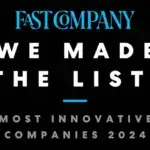Executive Chairman of Accela Mark Jung talks about the new era of engaged customer service and how governments can seize the moment

Editor’s Note: Mark Jung is the former executive chairman of Accela who served from 2016 to 2019.
Mark Jung is the executive chairman of Accela. He has advised the company on strategic initiatives and operations since 2015 and has served as Accela’s executive chairman since 2016.
Speaking about the new challenges of changing customer expectations, Jung speaks about how governments can leverage this moment to improve services, save resources and shape perception within the communities they serve. He also shares his thoughts on how governments can adapt to emerging industries such as cannabis, the short-term rentals and how governments can adapt services to adjust to these relatively uncharted markets.
How are the demands on government services shifting with the ubiquitous use of digital tools and platforms?
Executive Chairman Mark Jung: We are in the era of customer empowerment where companies adapt quickly to trends and demands. With 24/7 engagement and seamless integration across devices, retailers like Amazon, Nordstrom and Apple have fundamentally transformed the shopping experience. Consumers expect answers to their questions — and to be able to track progress on purchases and shipments–with a few clicks, swipes or taps.
As customer service in the private sector has evolved, so has the nature of the interactions between citizens, businesses and their government. As expectations increase, the level of services within governments of all sizes must evolve. The old ways of driving to City Hall, waiting in line and filling out a form, just don’t work anymore. Citizens and businesses want to spend less time interacting with government. They are asking, “If I can get anything I want on my phone anytime I want, why can’t I interact with my government in the same way?”
How can governments respond to new expectations by businesses and citizens?
MJ: Governments are faced with a reality that technology is rapidly evolving and moving faster than governments have historically been equipped to handle. It’s not just the pace of change, it’s the unpredictable nature of change that is hard for governments to manage. Governments have an opportunity to learn from private sector innovation, their successes and failures, and leapfrog years ahead from how they are currently operating. This fundamentally transforms how citizens and businesses interact with governments.
How is Accela partnering with governments to help reshape their citizen services?
MJ: Rather than view the new era of customer empowerment with apprehension, we work with governments to embrace the opportunity of empowering their citizens and businesses with flexible, state-of-the-art technology. For most governments that means moving their operations to the cloud to improve services and save money. According to a 2018 survey conducted by Bain Research, by 2022, 78 percent of government entities will be predominantly buying Software as a Service (SaaS) to focus their resources on activities that more directly serve their citizens.
Accela is driving company-wide initiatives to ensure that we deliver government-specific solutions to keep pace with the rapid adoption of SaaS by government agencies. Our SaaS solutions are adopted by customers because they are fast to deploy, easy to manage, and cost-effectively and securely serve the needs of citizens, businesses and governments.
We recently detailed the top reasons government leaders are moving to the cloud, chief among these are cost savings and ability to adapt to a rapidly evolving technology and regulatory landscape. According to a recent Gartner survey, implementing cloud services and solutions is the top priority for nearly one-third of governments. The reasons are clear: financial savings, improved security, automatic updates, talent management, data analytics, improved system integration, and urgency.
How are you helping governments handle entirely new industries such as cannabis, short-term rental, and others?
MJ: In March of this year we launched the first of our Accela Civic Solutions. These are software solutions for common government use cases, and have best practices for running government processes built in. They are all SaaS and are backed by a team of technology and policy experts. The Accela Civic Application for Cannabis Regulation and the Accela Civic Application for Short-Term Rental Registration are the first offerings that provide governments customizable, easy-to-implement solutions to help solve new and evolving regulatory challenges. We’ll be announcing additional Civic Applications in the next couple of weeks. By pairing these applications with SaaS, governments are able to scale, adapt rapidly, and prepare for whatever is next.
How is Accela ensuring that governments are better connected to the communities they serve?
MJ: We’ve turned the page on a new era of technology where migrating to the cloud saves money, reduces spending, and improves the customer interaction. Governments are just beginning to unlock the potential that SaaS has to offer.
Migrating to the cloud means a cannabis business can easily find and digitally complete any paperwork necessary to obtain a permit–and stay informed at anytime from any device throughout the process. This also means faster approvals for property development at a time when many communities are in desperate need of more housing, resulting in access to real-time management of a city’s budget and spending.
Improving government customer service will take innovation and hard work, and with Accela as a trusted partner, governments can leap forward, embrace the newest technology, prepare for unknown challenges, and meet the needs of communities.



